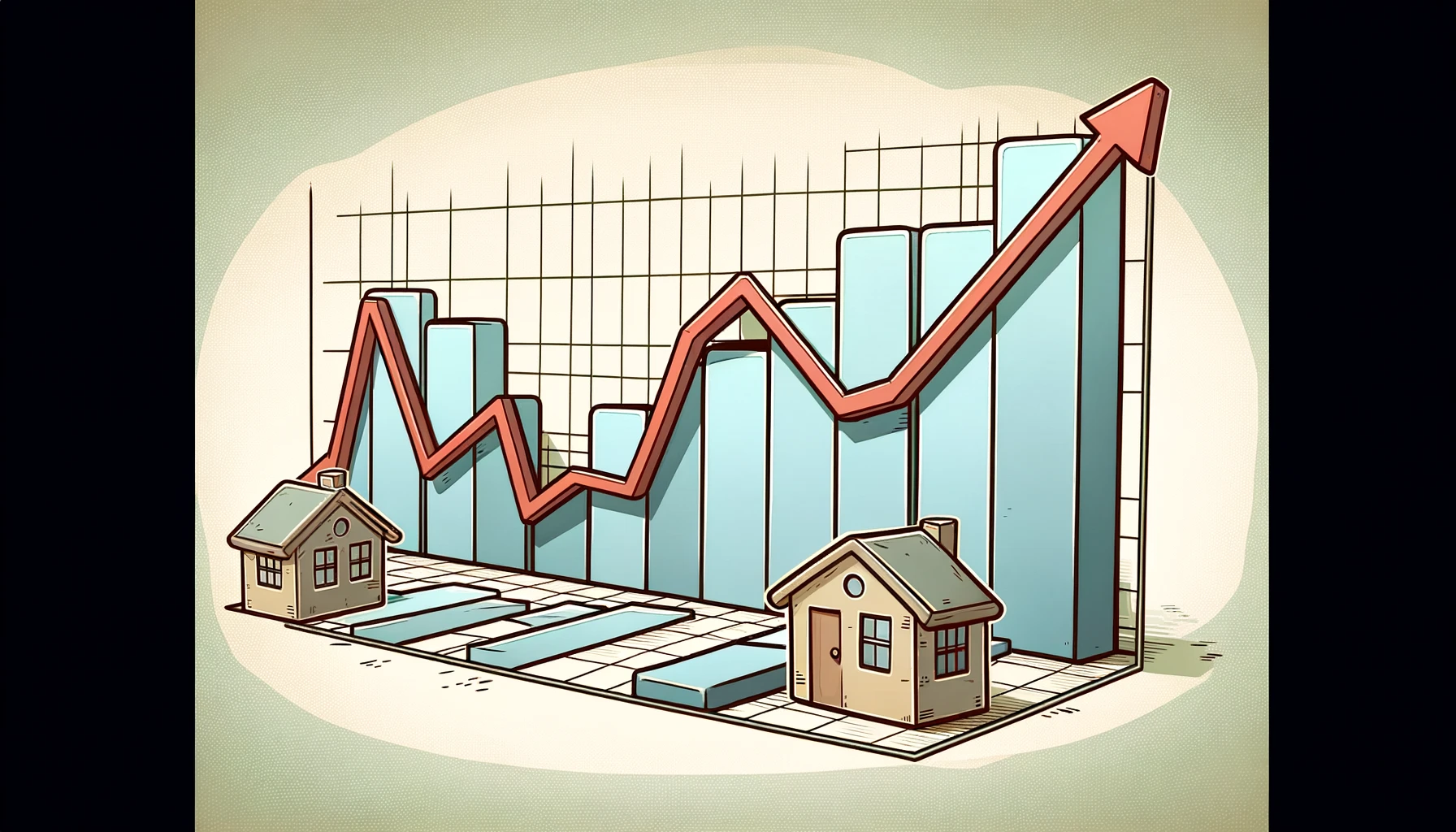What Does CRM Stand for in Real Estate: A Definitive Guide

Uncover the role of CRM in real estate for client management and sales growth. Learn its meaning and strategic benefits for realtors.
Decoding CRM: Your Real Estate Business Growth Engine
In the growing real estate market, the term CRM stands for Customer Relationship Management, a pivotal tool that acts as the central hub for your business interactions and client data. Integrating a CRM system into your real estate operations means streamlining processes, enhancing communication, and ultimately, driving growth. Let’s dive into the transformative power of CRM in real estate.
Customized Client Interactions: CRM systems boost client communications, ensuring that every interaction is tailored and relevant. This level of customization fosters stronger relationships and can lead to increased client retention and referrals.
Efficiency and Automation: By automating routine tasks like data entry and lead tracking, a CRM allows realtors to focus on what they do best – closing deals and nurturing client relationships. Automation reduces the risk of human error, saving time and resources.
Real-Time Accessibility: With mobile and remote access features, CRM systems ensure that your business information and client data are at your fingertips, no matter where you are. This mobility is crucial in today’s fast-paced real estate environment.
Strategic Insights: A robust CRM solution provides valuable analytics and reporting tools, offering insights into business performance. These data-driven strategies enable realtors to make informed decisions and adapt to market trends effectively.
Choosing the right CRM for your real estate business involves assessing your specific needs and aligning them with the system’s features. Whether you opt for an in-house or a cloud-based solution like OZMA, the goal is to enhance your service delivery, optimize your sales process, and ensure a seamless flow of information across your business channels.

By embracing CRM, you’re not just investing in software; you’re investing in a strategic partner that propels your real estate business towards sustained growth and success. With a CRM, you can effectively manage your contacts, properties, transactions, and marketing campaigns, all while providing exceptional service that sets you apart in the competitive real estate landscape.
Streamlining Operations with Real Estate CRM Solutions
In the dynamic world of real estate, a robust CRM system is not just a luxury—it’s a necessity for staying ahead. The essence of CRM in real estate lies in its ability to consolidate client data, streamline transaction processes, and enhance communication, all of which are pivotal for closing deals swiftly and efficiently.
Effortless Automation and Customization: Real estate agents are turning to CRM systems to automate everyday tasks, such as updating client records and managing leads. This shift not only saves precious time but also allows for a deeper level of customization, aligning the CRM’s functionality with the agent’s unique objectives and workflows.
Key Features for Success: The heart of a real estate CRM is its feature set, which typically includes storing detailed property and client information, managing contacts and leads, and overseeing deals and sales. These systems also support the standardization of approval workflows, fostering consistent and professional client interactions.
Real estate professionals benefit from CRM’s mobility, granting them the freedom to access vital information remotely, whether they’re at a showing or on the road. Additionally, CRM software often integrates seamlessly with other industry tools and stakeholders, ensuring a cohesive approach to property management.
Cost-Effective Solutions: When it comes to cost, real estate CRMs offer a range of pricing models to suit various business sizes, with many providers offering free trial periods and budget-friendly options for small teams. Some even provide free CRM solutions, making this technology accessible to everyone in the industry.
Choosing the Right CRM: Deciding between an in-house or a cloud-based CRM solution like OZMA is a significant step. Considerations include the size of your business, the level of support you need, and the specific features that will most benefit your daily operations.
Using a CRM is transformative for realtors, centralizing business information, and simplifying the management of contracts, transactions, and marketing efforts. It enables the tracking of business performance and the formulation of strategies for improved results.
For real estate teams, CRM software caters to various disciplines, offering tailored applications for agents, administrative staff, marketing, sales, and customer support. This versatility underscores the CRM’s role as a comprehensive tool for property management.

Navigating CRM Costs and Investments for Real Estate
Investing in a CRM system is a significant decision for real estate professionals, balancing costs with the undeniable benefits of improved client management and sales processes. Understanding the financial aspect is key to making an informed choice that aligns with your business goals.
Cost Considerations: Real estate CRM software pricing varies, with options for every budget. Many solutions, like OZMA, offer tiered pricing models based on features and user counts, ensuring that both small businesses and larger enterprises can find a suitable package. Here’s a quick look at typical cost factors:
| Cost Factor | Description |
|---|---|
| Initial Setup Fees | One-time costs associated with getting your CRM up and running |
| Monthly or Annual Subscription Fees | Ongoing costs for using the CRM platform |
| Customization and Integration Costs | Additional expenses for tailoring the CRM to your needs |
| Training and Support Fees | Costs for learning how to use the CRM and ongoing assistance |
Free and Low-Cost Trials: To ease the financial burden, many CRM providers offer free trial periods, allowing real estate agencies to test out the software before committing. Additionally, some companies provide free versions of their software with basic functionalities, which can be a great starting point for smaller teams.
Choosing Wisely: When selecting a CRM, consider whether an in-house/on-premise solution or a web-based/cloud-based system like OZMA is more suitable. Each has its own set of advantages, and your choice should reflect your team’s size, technical capabilities, and specific real estate needs.
The Value of CRM: While there’s a cost to CRM, the return on investment can be substantial. A good CRM system not only organizes client data and automates tasks but also offers strategic insights that can lead to more closed deals and business growth. The right CRM investment can transform your real estate operations, making it a worthy consideration for your future success.

Remember, a CRM is more than just a software solution; it’s a strategic investment in your real estate business’s future. By carefully navigating the costs and choosing a platform like OZMA, you can ensure that your CRM stands as a pillar of efficiency, client satisfaction, and overall business triumph.
Choosing the Right CRM: On-Premise vs Cloud Solutions
In the realm of real estate, selecting the right Customer Relationship Management (CRM) system is critical to enhancing client communications and securing deal closures. As you explore the available CRM options, the choice often boils down to on-premise versus cloud-based solutions.
On-Premise CRM Solutions: These are installed locally on your company’s hardware and managed by your IT team. They offer full control over the security and maintenance of the system, which can be crucial for agencies handling sensitive client data. However, they may involve higher upfront costs due to hardware investments and the need for an in-house team to manage and update the system.
Cloud-Based CRM Solutions: Cloud-based CRMs like OZMA are hosted on the provider’s servers and accessed via the web. They are renowned for their affordability, scalability, and ease of access, providing real-time data and mobility that’s indispensable in the fast-paced real estate market. With a subscription-based model, these solutions often include regular updates and support, minimizing the need for an extensive in-house IT team.
When considering the right CRM for your real estate business, weigh these critical factors:
- Data Security: Determine the level of security you need for your client information.
- Cost Efficiency: Assess the total cost of ownership, including setup, subscription, and maintenance fees.
- Customization and Integration: Ensure the CRM can be customized to fit your processes and can integrate with other tools you use.
- User Accessibility: Consider the need for remote access to CRM data for agents in the field.
Here’s a comparison of the two types of CRM solutions:
| Feature | On-Premise CRM | Cloud-Based CRM |
|---|---|---|
| Data Control | High | Low |
| Initial Investment | High | Low |
| Scalability | Low | High |
| Maintenance Responsibility | High | Low |
| Accessibility and Mobility | Low | High |

Ultimately, your choice should align with your real estate agency’s size, workflow, and long-term goals. Whether you choose the robust control of an on-premise system or the dynamic flexibility of a cloud-based CRM like OZMA, the right CRM will act as the backbone of your client relations and business growth strategy in the competitive real estate landscape.
Empowering Real Estate Teams with Advanced CRM Tools
Real estate teams thrive on coordination and efficiency, and advanced CRM tools are the linchpin for achieving peak performance. The key to a successful real estate operation lies in the ability to manage intricate client relationships and property details with finesse, a task made effortless by modern CRM solutions.
Centralized Information Management: By consolidating all client and property data into one accessible platform, CRM systems ensure that every team member is on the same page. This centralization eliminates data silos and ensures that information is up-to-date and easily retrievable, enhancing collaboration and decision-making.
Enhanced Lead Management: The real estate sector is incredibly competitive, making lead management a critical component of any CRM system. Advanced tools enable teams to capture, track, and nurture leads throughout the sales funnel, increasing the chances of conversion and helping agents prioritize their efforts effectively.
Improved Client Engagement: A CRM system equips real estate professionals with the tools needed to build and maintain strong client relationships. Customizable communication templates, automated follow-ups, and interaction tracking all contribute to a more personalized customer experience.
Streamlined Workflow Automation: The automation of routine tasks such as scheduling, follow-ups, and reporting allows real estate teams to focus on what truly matters—closing deals and cultivating client relationships. OZMA’s CRM solutions provide agents with more time to engage with clients and prospects, driving business growth.
Integration and Mobility: In an era where flexibility is paramount, CRM systems offer integration with various real estate tools and platforms, ensuring seamless workflows. Mobile access to CRM data empowers agents to work effectively from any location, providing the agility needed in today’s fast-moving market.
Here’s a visual representation of how CRM tools benefit different team roles within a real estate agency:
| Team Role | CRM Benefit |
|---|---|
| Agents | Streamlined lead management and client engagement |
| Administration | Efficient document handling and transaction coordination |
| Marketing | Targeted campaign management and analytics |
| Sales | Real-time sales data and performance tracking |
| Customer Support | Access to comprehensive client history for improved service |

By integrating advanced CRM tools into their daily operations, real estate teams can harness the power of technology to elevate their service and drive success. As the real estate landscape continues to evolve, the adoption of such systems will become increasingly crucial for staying competitive and delivering exceptional client value.
FAQs
What is CRM in real estate?
CRM in real estate refers to Customer Relationship Management systems that help realtors manage client interactions and streamline transactions.
How does CRM benefit real estate professionals?
CRM benefits real estate professionals by organizing client data, automating tasks, and improving lead generation and follow-up processes.
Can CRM software help in closing more deals?
Yes, CRM software can significantly help real estate agents close more deals by maintaining better client relationships and timely follow-ups.
What features should a real estate CRM have?
A real estate CRM should have contact management, lead tracking, automation, reporting tools, and integration with other real estate platforms.
Is CRM important for real estate marketing?
CRM is crucial for real estate marketing as it enables targeted campaigns, nurtures leads, and measures the effectiveness of marketing efforts.
Read more about low-code platform ozma.io
CRM for Beginners: Easy to Start!
CRM for Photographers: More Clients and Efficiency





